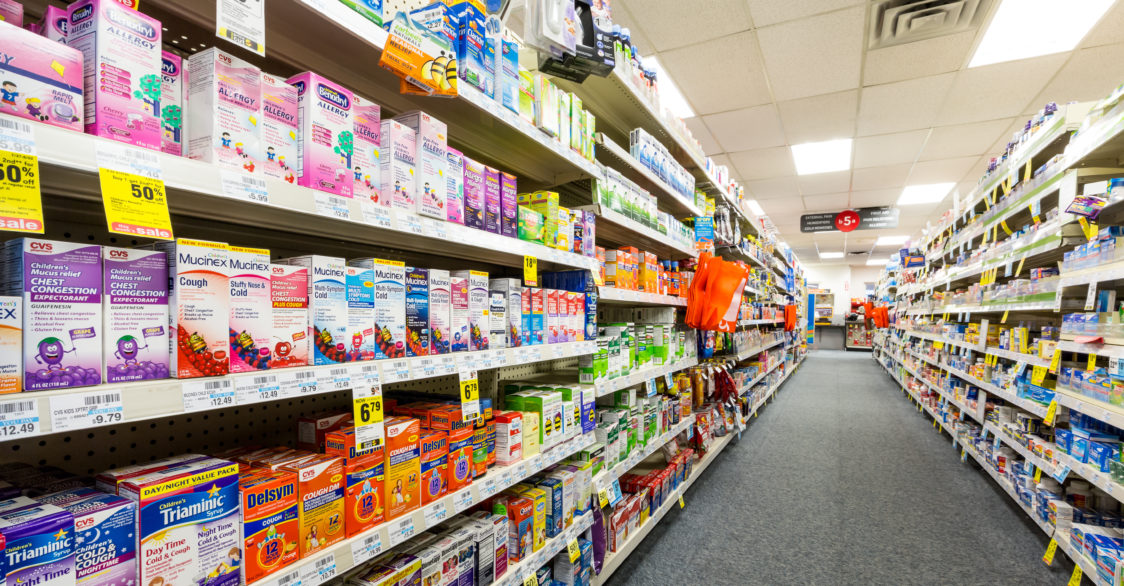It’s yet another perilous turn in the nation’s addiction epidemic — the use of Imodium and other anti-diarrhea drugs in an attempt to get high or to stave off withdrawal pains from opioids such as prescription painkillers or heroin.
How does anti-diarrhea medication relate to opioids? It turns out such over-the-counter drugs have an active ingredient called loperamide, which acts on opioid receptors. But because the effect is limited to the gastrointestinal tract and there is poor penetration to the central nervous system when it’s taken at the recommended dose, loperamide was thought to have little potential to be misused.
The problem is that some are taking massive doses of loperamide in an attempt to overcome those barriers, many times in an attempt to self-treat an opioid addiction and keep withdrawal symptoms such as muscle pain, nausea, sweating and vomiting at bay. Doing so, however, can be dangerous, with the potential to cause cardiac dysrhythmias, respiratory depression and death.
A Growing Trend
A 2016 report published in the Annals of Emergency Medicine warned that loperamide abuse is becoming more and more common. From 2011 to 2014, for example, the American Association of Poison Control Centers recorded a 71% spike in calls related to intentional loperamide misuse.
That upward trend is only expected to increase as new prescribing guidelines and regulations around painkillers increasingly limit the availability of opioids and make those who are addicted to them more desperate for anything that might help with withdrawal symptoms.
Medical professionals need to be aware of the phenomenon, the study warned, so that they can recognize and appropriately treat those dealing with the issue. And crucially, the public needs to be warned of the very real risk of harm and death from exceeding the recommended dose of loperamide.
In the study, the authors examined two deaths believed to be related to loperamide. In one, a 39-year-old man suddenly began gasping for air and collapsed, a reaction consistent with heart dysrhythmia. He was pronounced dead on arrival at the hospital. In the other, a man in his early 20s was found unresponsive, with seizure-like activity, and with six empty boxes of loperamide on the scene. In both cases, the men were found to have been using loperamide in an attempt to manage an opioid addiction.
Discovering the Abuse Potential
In tracking the progression of the loperamide trend, the study noted that online chatter about using over-the-counter drugs like Imodium in extreme doses first began showing up on forums around 2005. From 2010 to 2011, online postings in such forums spiked tenfold. Most of the online conversation, about 70%, was about using loperamide as a way to deal with opioid withdrawal symptoms. About 25% said they used it for its euphoric properties.
Imodium is just one of many over-the-counter drugs found to have abuse potential. In 2005, retail sales of pseudoephedrine, an ingredient found in many cold medications, were restricted after it was discovered that the ingredient could be used to make crystal methamphetamine. Some are calling for similar limits on retail sales of anti-diarrhea medication.
Food and Drug Administration spokeswoman Sarah Peddicord told the New York Times that the FDA is aware of the reports of adverse effects due to misuse of loperamide, is investigating and “will take appropriate steps as soon as possible.”
Some of the appeal of using loperamide is that it’s cheap and easy to get. But there’s also a lack of social stigma when buying an over-the-counter drug. A person who might find it hard to admit their opioid use has spiraled out of control and that they need addiction treatment may see loperamide as a way to try to deal with the problem under the radar. All it does, however, is delay the help that is needed and that can prove so life-changing, while putting the addicted person at yet more risk.








